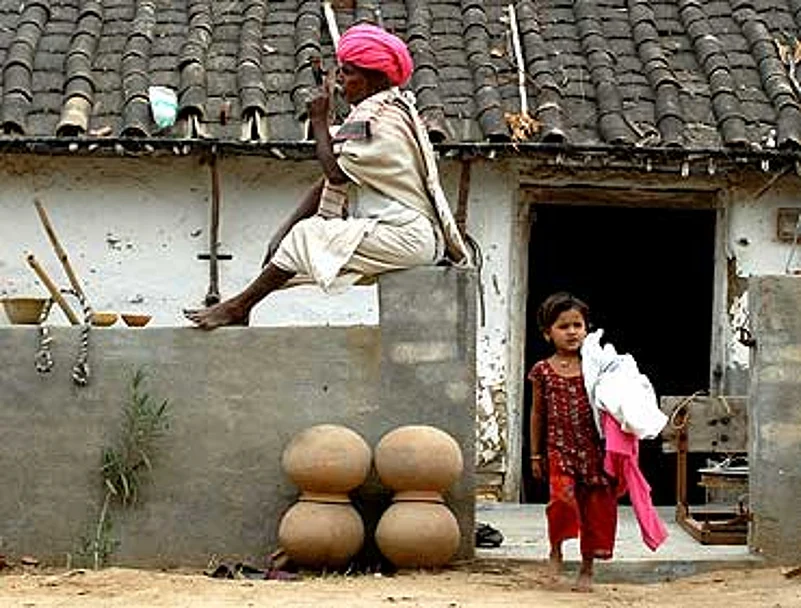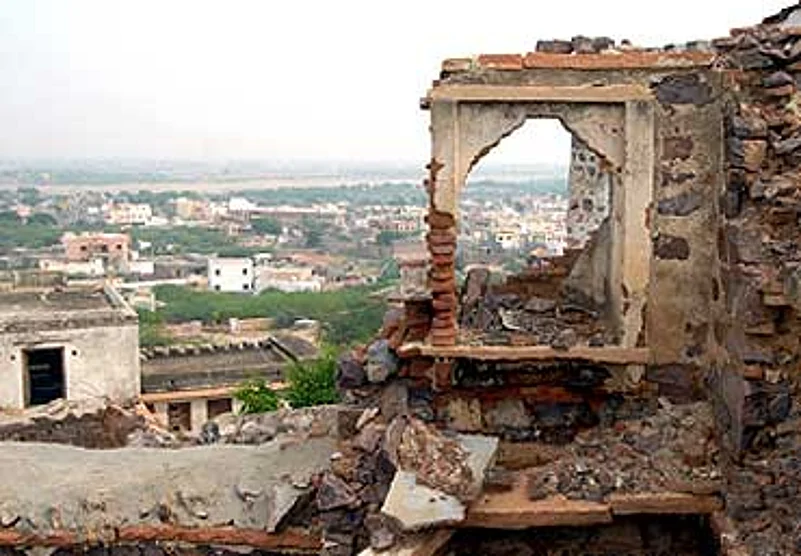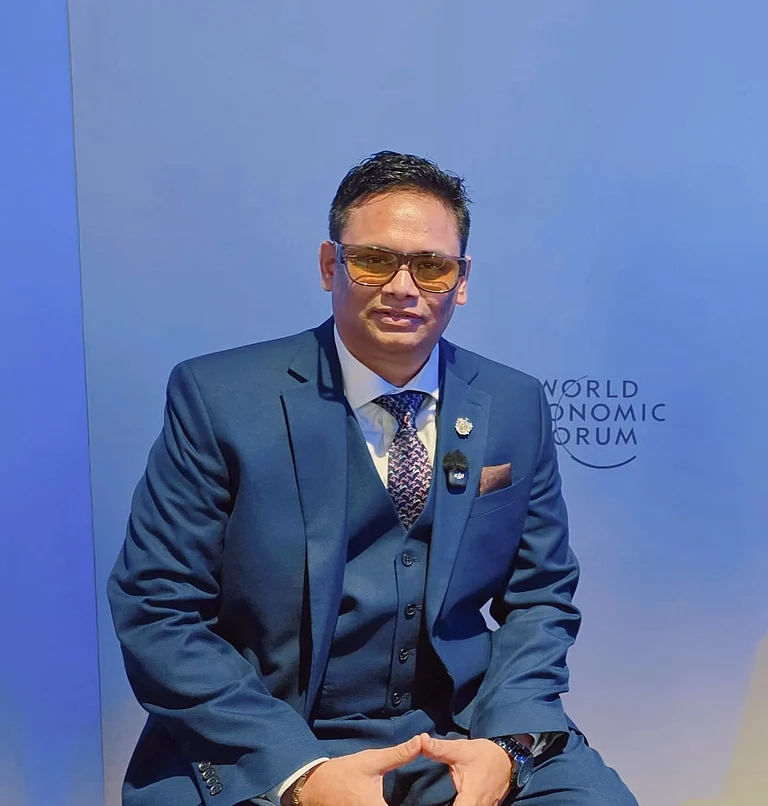I am from the villages of Jasol and Khuri. Jasol, my dadihaal, my father’s place, was a place of duty; Khuri, my nanihaal, my mother’s place, gave me love. There is a particular tree that grows in the deserts of Rajasthan, and especially in the district of Barmer—I don’t know its Latin name, but what is important is that it puts down such deep roots that it remains in leaf and green throughout the year, even during a drought. This is the kind of place I am from. Our people, even if not necessarily educated, are literate in the deep-rooted traditions of the place—the same traditions that have given me my identity, my quirks of character, the values and the code I live by.
My grandfather’s house in Jasol, where I was born and spent my childhood, was a sprawling place surrounded by desert, about 100 km from Jodhpur. My mother’s apartments were the most beautiful part of the house, with exquisite sandstone carvings on the balcony, This part of the house has now fallen.

Hardy hearts: Jasol, the village in which Jaswant Singh was born
The rhythms of the year were determined by nature, and the passing of the hours were marked by sounds, not by watches or clocks. The day would begin with sounds of the camels arriving, carrying leather pouches of water, the churning of yoghurt in clay pots, the dawn prayers, then the pounding of spices, the grinding of wheat.... In the afternoon heat, all activity would stop, the house would fall silent, and then the sounds would resume in the evening with the arrival of the bangle seller, the lantern carrier, the milkman. And at the end of the day, the bubbling of my grandfather’s hookah.
Values were learnt not from lectures, but through the examples set by both my grandfathers, their remarks and reactions, and the many conversations with them—and together these created an expectation of what they regarded as proper behaviour, emphasising traits like physical courage, in both men and women; the meaning of duty and responsibility; an unbending spirit, self-esteem without pride.
I remember when I was about four. World War II had just come to an end, and we had bought Jeeps that were Army surplus. It was night and a servant was pouring petrol in the tank, but because he didn’t have a funnel, much of it splashed around, some on my left arm, because I was sitting there, pretending to drive. And then, in the manner of people unfamiliar with petrol vehicles, he lit a match to see how he’d done. The match head broke and fell into the petrol, which exploded into flame. He dragged me out, but my whole left arm was burned, and my first thought was that I mustn’t cry. It was what was expected of me.
Similarly, as children, my cousin Hanut Singh and I once went exploring, and found some statue heads in an abandoned area—maybe from a destroyed fort or a vanished settlement. When we came back in the evening, my mother was irate. "Go and put them right back where you found them," she said. We put them back, but by now others have taken them away. But this rule about not taking things that are not yours, even abandoned things, I have carried from there.
Then there were things that we were not taught—things like divisions along the lines of caste and creed. My riding instructor was someone who would today be described as belonging to the scheduled castes, but it wasn’t a description I was ever taught. Similarly, Muslims have always lived amongst us, in both Jasol and Khuri, as our own kin; we were never taught to feel or see that they were different. It is a tradition in our village that when a person makes a pilgrimage to the Hinglaj Mata shrine in Pakistan, across the deserts of Rajasthan, Sindh and Balochistan, as I did in 2006, he must take with him representatives of the 36 communities in the village at his own expense. Accordingly, 20 of the 100 people that went with me were Muslims.

The ruins of Jaswant Singh’s old home
Even now, when I return to my village, I don’t really campaign and ask for votes. I can’t weigh my relationship with the people there in this way. If they wish to vote for me, or not, that matters less to me than the social unity that I was raised up in. I cannot break that up on the basis of caste or creed. After the Gujarat riots, a number of maulvis came there just before the elections which my son was contesting, The Muslims I grew up with said, "What have we to do with Gujarat? We have to live with you." A third of the population in the constituency is Muslim, and I’m proud to say that 90 per cent of them voted for my son.
My paternal grandfather often used to say, "If an animal does not move around, how will it ever graze?" What he really meant was that people should keep moving, learning, in order to keep growing. As the World War II ended and Independence approached, he sensed that his world in Jasol was about to change rapidly. Partition saddened him greatly. "You do not make things by breaking them," he said, and he urged me to "Go, go out into the world, keep moving. And earn a name. It is Dilli that you have to reach one day, and tell them what a great wrong they have done."
When I told my father that I wished to continue my education in a European university, he regretted that we just didn’t have the money for that. I was just 15 then. I told no one, applied to join the army, and suddenly I was gone. And so I left Jasol to go out into the world, but Jasol has never left me.
(BJP leader Jaswant Singh is Leader of the Opposition in the Rajya Sabha)
As told to Omair Ahmad


























